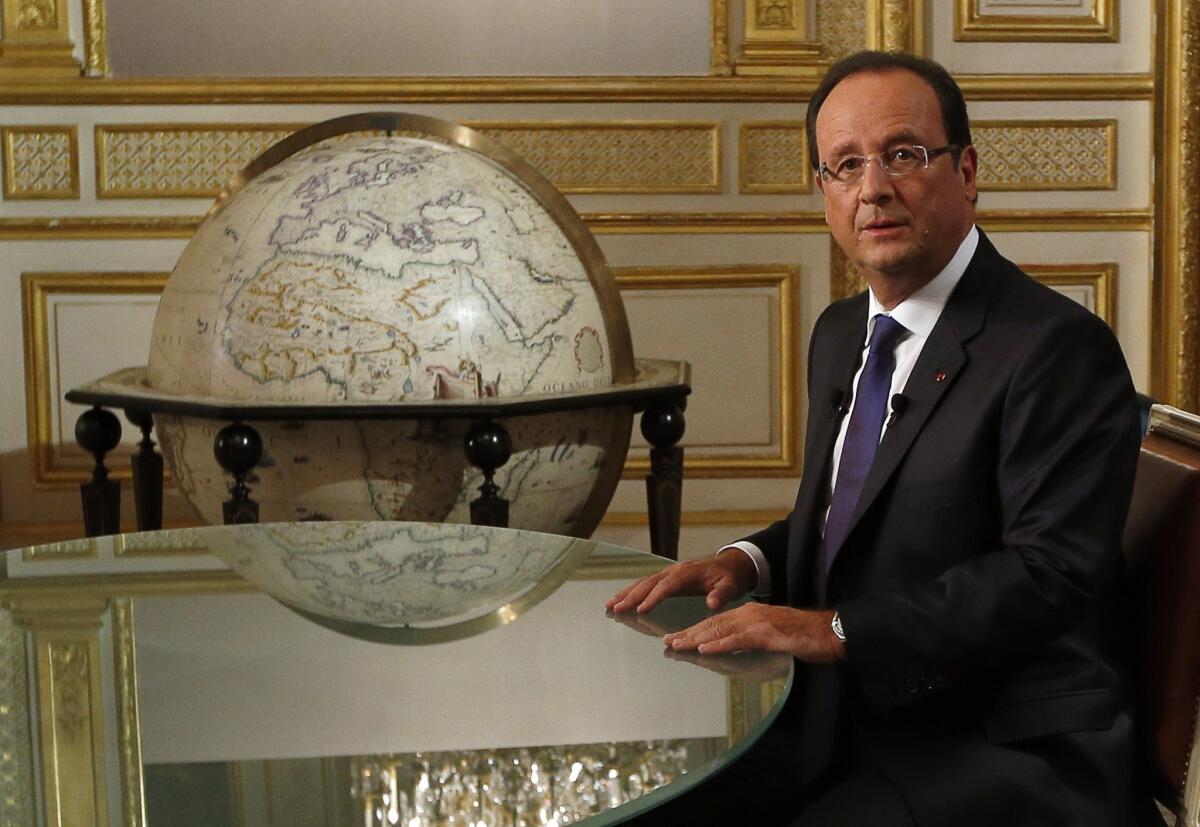France’s Francois Hollande takes some credit for Syria deal

PARIS -- French President Francois Hollande said Sunday that the prospect of French as well as American intervention led Syria to accept a deal to relinquish its chemical weapons, but he said the international community must continue to maintain the threat of force to ensure that the agreement is carried out.
“The military threat has to be maintained to bring [Syrian President Bashar] Assad to the table,” Hollande said in an interview with France’s TF1 television station. “And sanctions have to be envisaged if he does not comply” with any U.N. resolution on the chemical weapons.
Hollande has been President Obama’s most prominent European supporter on the issue of armed intervention in Syria. Before Russia proposed that Syria agree to give up its chemical weapons, the French president had called for a coalition of European states to join in military action against Syria but said France would go it alone if necessary.
“We threatened force,” Hollande said in the interview Sunday, “not just us but the United States and the United Kingdom. If we hadn’t, Assad would have continued to threaten his own population.”
British Prime Minister David Cameron backed off from a threat of force after Parliament voted to oppose military intervention.
Hollande called the Syrian civil war “the most serious tragedy since the start of the 21st century” and said France could be proud of its efforts to bring about a solution to the chemical weapons issue.
“Until now, it was the United States and France who envisaged [air] strikes to change something, and to persuade the Russians,” he said. “The pressure we exercised has played a part. The next step is to find a political solution to the Syrian crisis.”
Responding to allegations that France had become America’s puppet, Hollande said: “What crime is there to be with President Obama on this essential question that affects our own security? France considers that what has been agreed between Russians and Americans is an important step.”
Hollande said he would meet with U.S. Secretary of State John F. Kerry and British Foreign Secretary William Hague on Monday, and that French Foreign Minister Laurent Fabius would be traveling to Russia, as part of France’s efforts to draw up the U.N. resolution. He said he hoped the Security Council would vote on the resolution by the end of the week.
He insisted that what “France wants, what the world wants, is a diplomatic solution.”
ALSO:
Egypt’s Hosni Mubarak is back in court -- but not for long
Bomb kills Pakistani general near Afghanistan; Taliban takes credit
Israel has 80 nuclear warheads and can make 115 to 190 more, report says
More to Read
Sign up for Essential California
The most important California stories and recommendations in your inbox every morning.
You may occasionally receive promotional content from the Los Angeles Times.










